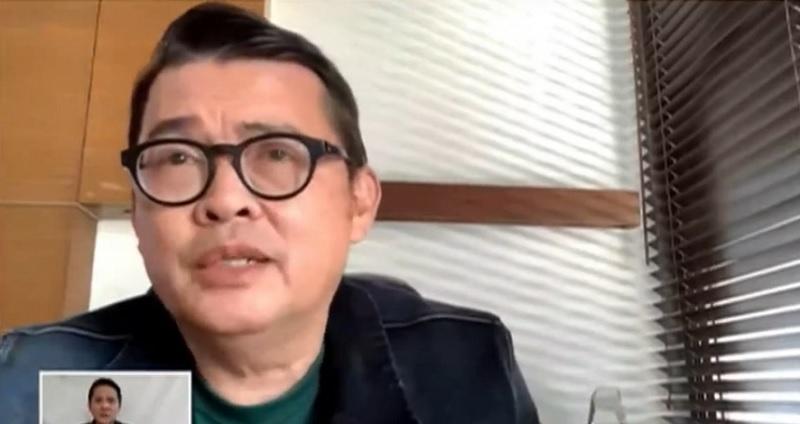How the private sector is stepping up in the Philippines’ vaccination drive against COVID-19

The private sector is shouldering the storage costs for all COVID-19 vaccines entering the country, whether procured by the government or by private firms, Presidential Adviser for Entrepreneurship Jose Ma. "Joey" Concepcion III said.
"All the vaccines that are arriving, whether it's ours or the government's, we are shouldering all the costs," Concepcion told GMA News Online in a phone interview on Tuesday.
Paying for the cost of storing the vaccines—some of which will require ultra-low temperature storage—is just one of the ways the business sector is helping the government in its drive to achieve herd immunity by vaccinating a sizable proportion of the Philippines' population against the coronavirus.
The private sector earlier announced it will donate half of the six million doses of the AstraZeneca vaccine it procured to the government, with the remaining half to go to private sector employees.
Concepcion earlier on Tuesday said some 1.3 million of the AstraZeneca doses will arrive in June, covering close to 100 companies.
"All of the vaccines that we purchased, we are paying for the entire implementation from the arrival, all the way to the storage, all the way to the distribution to the different vaccine centers," he said.
The initial shipment will be made available to the first companies that have committed to buy vaccines such as the Ayala Group, the Sy-led SM Group, the Razon Group, the Tan-led Megaworld, the Lucio Tan Group, the Philippine Franchising Association, and the Philippine Retailers Association.
A number of local firms, including major corporations across the country—among them San Miguel Corporation, SM Group, McDonald's Philippines, Jollibee, Coca-Cola Beverages Philippines, Philam Group, LT Group, FWD Insurance, Accenture Philippines, GMA Network and the Metro Pacific Tollways Corporation—have already committed to vaccinate their employees for free with AstraZeneca, Moderna, and other vaccines.
Logistics and storage
Concepcion said that the vaccines are being stored in a centralized facility to ensure that they are kept in certain conditions before they are sent out to vaccination centers.
"So we don't complicate it, it's under one service provider," he explained.
The presidential adviser estimated logistics and storage costs at P30 per dose under Zuellig. This means logistics and storage costs for an individual that needs two doses are at P60.
"All of this is paid by us, the private sector, all the way down to getting the service provider for the vaccination of our employees," he said.
"The logistics company will handle basically the deliveries on top of the storage, and will handle the deliveries for both doses—the first and the second dose—for the different companies and their employees as well, so that's how it's going to go through," he added.
Taking these into account, Concepcion estimates the cost to vaccinate a person at P300 to P400.
Vaccination proper
Several corporations have also teamed up with local government units to put up vaccination centers across the country.
"'Yung business sector, yung kanilang mga malls, yung kanilang mga gymnasiums, yung kanilang tinatawag nating malalaking area, ay vino-volunteer po nila. Actually 'yung Ayala Malls, 'yung SM Malls, yung...mga Robinson's, 'yung mga ibang business center, binibigyan po nila ng space ang ating vaccination sites," vaccine czar Secretary Carlito Galvez Jr. said on Monday night during President Rodrigo Duterte's Talk To The People televised briefing.
[The business sector is volunteering its malls, its gymnasiums, its large areas. Ayala Malls, SM Malls, Robinson's and other business centers are providing spaces for our vaccination sites.]
Concepcion said the private sector will have an advantage over the government as employees will be easier to assemble for firms that have their workers report to work physically.
"First batch, we want everybody to be done by July, even June, as it arrives," said Concepcion, referring to the 1.3 million AstraZeneca doses expected to arrive in June. "For the private sector, it's very easy because we can round up employees and they're just in our respective plants, so some of the vaccine centers will be set up in our factories so it's faster," he said.
The second batch is expected towards the latter part of July and August, which will be the next focus moving forward.
"We're leaving it up to the private sector to secure their outsource providers for this vaccination of their employees. They don't need to clear with us anything, provided that they are DOH-accredited which most of us are anyway," said Concepcion.
For its part, the Philippine government has allocated P82.5 billion to cover around 55% of the country's population.
After being under community quarantines for a full year, the Philippines has so far received over four million doses of COVID-19 vaccines composed of shipments from Britain's AstraZeneca, China's Sinovac, and Russia's Sputnik V.
The latest data available from the Department of Health (DOH) shows that as of May 1, a total of 284,533 individuals in the country have been fully vaccinated. This is equivalent to 0.25% of the population.
Galvez said the Philippines will need 15 million doses of COVID-19 vaccines a month to achieve herd immunity before the end of the year.
The Philippines on Tuesday recorded 5,683 new confirmed cases of COVID-19, bringing the total caseload to 1,067,892. This includes 66,060 active cases, 984,210 recoveries, and 17,622 deaths. — BM, GMA News



